How BYU Changed My Life
mountain musings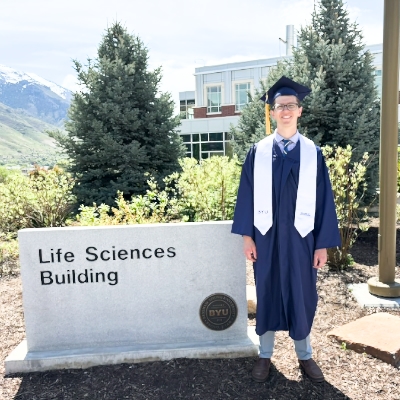
My time at Brigham Young University has been life-changing. I know that getting an education in any form can improve the quality of your life, but for me, this change was deeper. My experience at BYU provided the medium for me to change my life. I was a good person and worked hard, but I didn’t always know what I was working hard for. There were underlying skills that I had developed on my mission and earlier in life, but they were sitting dormant until the right opportunities arose.
Deciding what to study at BYU was a challenge that took serious thought over most of a year. At the time, it felt like that decision would influence what I did for the rest of my life. While this isn’t totally incorrect, it is incomplete, as I now realize that a college degree is simply a starting place or launchpad to future opportunities. In the back of my mind, environmental science had always seemed interesting, but when I first got home from my mission as a representative of my church for two years in Virginia, I thought that there wouldn’t be any life-sustaining job opportunities for me, so I should look elsewhere. During my first semester, I was declared as a data science major and quickly realized that this path was not fulfilling for me. Deep down, I was a natural scientist and needed to be learning new things about the world to be satisfied. Over the summer, I thought about going into biological science education because I enjoy teaching and liked my biology classes in high school. But this still didn’t quite sit right. During the first week of the fall semester, I looked one last time at the environmental science major and noticed that something had changed. It was now called “Environmental Science and Sustainability.” The addition of “and sustainability” piqued my interest again and led to my decision to change majors and pursue that. And I can happily say that I haven’t looked back.
During that Fall Semester, I joined an environmental science careers class, a climate change class, and a soil science class. There were three key lessons I gleaned from that semester that have stayed with me throughout the rest of my time at BYU. First, there are loads of job opportunities in environmental science that provide an opportunity to do meaningful and interesting work (which was and still is very important to me). Second, even as a student, there are so many ways you can get involved in those meaningful opportunities to make a positive difference in the world. And third, professors are your friends. Understanding this has opened up so many doors for me. I also learned that soil is way more interesting than I would have ever imagined, proving my 6th-grade teacher wrong (long story for another time, but I digress).
In the climate change class, I learned of an opportunity to help design an exhibit at the Bean Museum about climate change. This is a topic that I had previously done some independent research on and feel very passionately about, so this sounded like an amazing project to work on. I volunteered and spent the next eight months working with several other students (including my future wife) researching, writing, and designing an exhibit, which is now being displayed on the top floor of the museum.
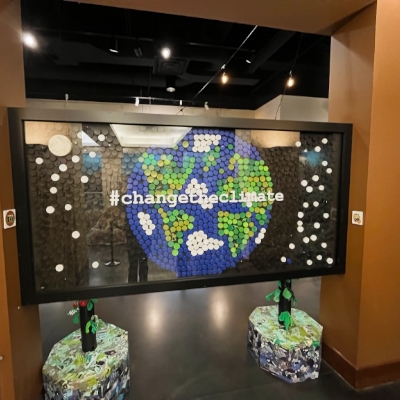
Over the following months, I also learned about ways that I could get involved in doing research in different labs (which I did in the Abbott lab for over a year studying stream ecology). This allowed me to do fieldwork–which can be a lot of fun–as well as learn how to use a variety of different lab analyzers. I also was able to start participating in environmental advocacy for Utah Lake as I learned about opportunities and stepped up to help out. That Utah Lake advocacy turned into a part-time job with Conserve Utah Valley, an amazing organization focused on building relationships in order to conserve land and water forever.
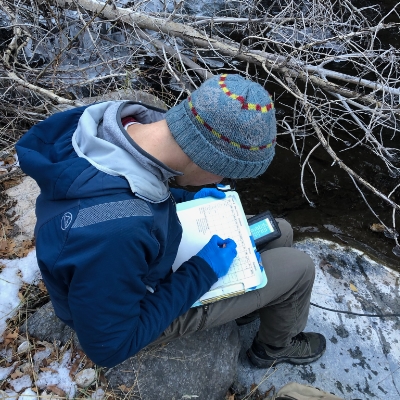
As more opportunities came up, however, I eventually found myself somewhat overwhelmed and realizing that at some point I would have to start saying no. I count myself fortunate that I was able to participate in lots of different projects and efforts early on in my schooling when my class schedule was somewhat lighter so that as I got busier I had a better idea of what things were interesting and what things I could let go.
Through my work with the Bean Museum, I also got connected with the BYU Office of Sustainability, which has resulted in some great relationships with different people. When opportunities to serve in meaningful ways arose, I took them and was able to help make a difference. One example is with the Y-Talk initiative. This was in preparation for climate scientist Katharine Hayhoe’s forum address. We decided that we wanted to invite people across the BYU community to initiate and record conversations they had about climate change. Over the course of several months, we recorded around 50,000 conversations, and that number is still rising.
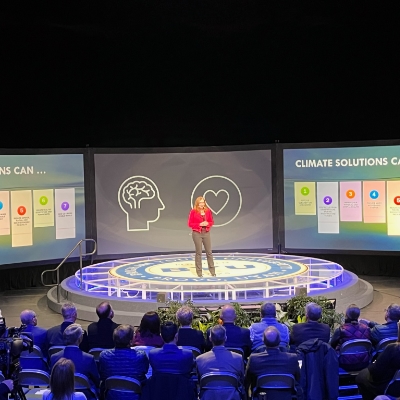
One of the highlights of my BYU experience was when I was invited to go on a research trip to Nepal. This invitation came after spending a year working with a research lab that was in an entirely different college than mine. During my formative first fall semester, I was introduced to the Civil engineering Sustainability Lab. Initially, I just went to lab meetings and learned about other projects. Eventually, the professor invited me to work on a research project studying ESG reports, which was new to me but sounded interesting. After spending a summer working on this, this professor approached me again about a new project studying air pollution around brick kiln communities in Nepal. This sounded very meaningful and interesting, so I agreed to help and only a few months later I found myself on the other side of the world for two weeks. For most of the project, I was completely out of my wheelhouse. We took the UN SDGs and developed several hundred interview questions to ask the people we interacted with.
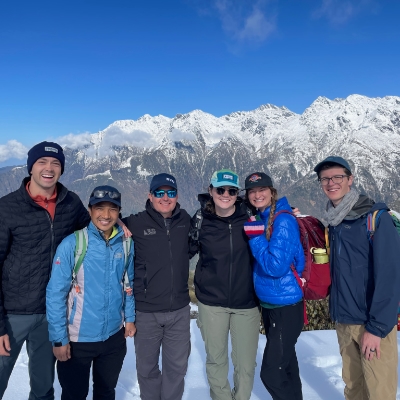
I also chose to take on performing environmental samples while in Nepal to get a baseline reading of conditions. The only problem was I didn’t know what would be helpful to measure and even if I did, I didn’t know how to do it. During the months preceding the trip, I spent hours researching and asking questions to professors who had some knowledge of the techniques that might be helpful. Eventually, I formulated a protocol to test about a dozen parameters in the water and soil. Unfortunately, the data was fairly limited so it wasn’t as helpful as I had hoped, but the experience of preparing for this process was invaluable in my personal development. With this research, I’m currently working on a journal article, and I’ve presented at an international soil science conference.
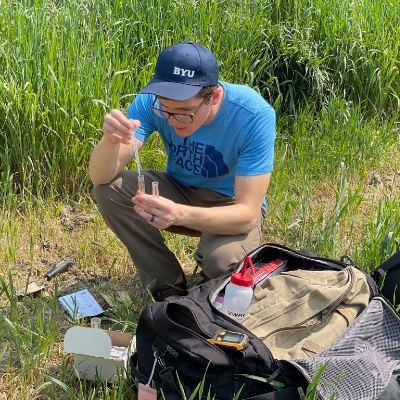
Another important project that I was invited to work on was related to recreation in Bears Ears National Monument. This started as part of an Environmental Policy Impact Clinic hosted by the BYU Law School. We worked with clients on projects that they needed help with. One project was down in southern Utah studying the impacts of recreation on the region. Eventually, my wife turned this into her Masters project and I’ve had the privilege of helping her collect and analyze data for that.
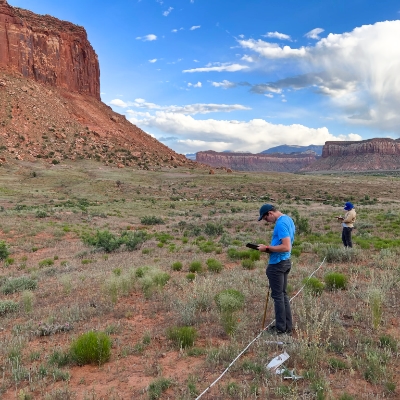
The most recent project that I’ve gotten involved in over the final year of my time at BYU has been the Grow the Flow initiative. For me, this has felt like a culminating capstone project of my experiences over the past four years. It has combined the marketing skills from Conserve Utah Valley, the networking/communication skills from my research, and the ecological knowledge from my coursework. This project is all about getting water back to Great Salt Lake through working with community members, businesses, policymakers, and other non-profits to understand the situation, develop policies that would get water to the lake, and activate the community to make things happen.
If I were to give a recommendation to new students about how to maximize their time at BYU, it would be to get involved early and never underestimate your ability to learn and contribute in meaningful ways. Because I showed initiative, I have designed a museum exhibit, published papers (with several more on the way), helped protect Utah Lake from development, helped lead an initiative to save Great Salt Lake, researched poverty in Nepal, presented at conferences, met my wife, and built lasting relationships with countless people from around the world. Of everything I did and learned, those relationships are the most important to me. Learning how to network is one of the most valuable skills I learned during my undergraduate experience and I’m sure that will continue to help me.
Additionally, follow your passions. If there is a topic that gets you excited, take time to learn more and develop that interest. Think about what occupies your mind during your free time, and consider choosing a major related to that. Because, quite frankly, many of the hard skills you learn at college can be learned anywhere, but the soft skills (effective communication, listening, note-taking, writing, etc.) are best learned in an environment dedicated to teaching those skills.
 Backcountry Basics
Backcountry Basics